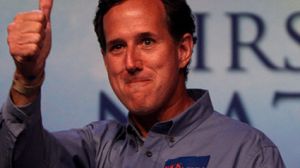 Idle factories, moored container ships, widespread bankruptcies, massive
migration back to the hinterlands, strangely clean air—the signs of
depression are everywhere in China. Because it makes so many of the
goods the world isn’t buying now, China stands to be worse hit than the
rest of the world
—just as America was during the Depression, when it was the world’s
sweatshop. But like America then, China will use tough times to design
innovative products that will get it the high profits and the high-value
jobs Americans kept to themselves for decades. And that is very bad
news for the United States, unless it uses tough times to reinvent
itself, too.
Idle factories, moored container ships, widespread bankruptcies, massive
migration back to the hinterlands, strangely clean air—the signs of
depression are everywhere in China. Because it makes so many of the
goods the world isn’t buying now, China stands to be worse hit than the
rest of the world
—just as America was during the Depression, when it was the world’s
sweatshop. But like America then, China will use tough times to design
innovative products that will get it the high profits and the high-value
jobs Americans kept to themselves for decades. And that is very bad
news for the United States, unless it uses tough times to reinvent
itself, too.Our apartment in Beijing overlooks one of the city’s long-distance bus terminals, where people arrive from the countryside to find work or sell wares, and depart for visits or permanent returns to their home villages. Early last summer, the terminal was jammed, and most of the passengers were leaving town.


























